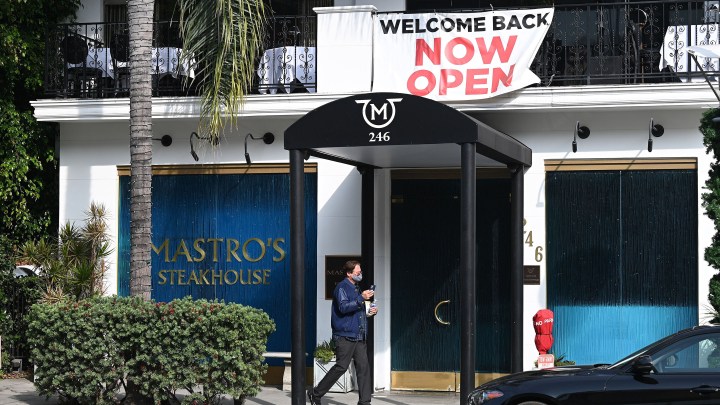
Unemployment claims are up again as pandemic worsens

The number of Americans applying for unemployment benefits rose last week to 778,000, evidence that the U.S. economy and job market remain under strain as coronavirus cases surge and colder weather heighten the risks.
The Labor Department’s report Wednesday said jobless claims climbed from 748,000 the week before. Before the virus struck hard in mid-March, weekly claims typically amounted to roughly 225,000. They shot up to 6.9 million during one week in March before dropping yet remain historically high more than eight months later, with many businesses unable to fully reopen.
The number of people who are continuing to receive traditional unemployment benefits is now 6.1 million, up from fewer than 1.7 million a year ago. Still, that figure had been declining for months. It shows that more Americans are finding jobs and no longer receiving unemployment aid. But it also indicates that many jobless people have used up their state unemployment aid — which typically expires after six months — and have transitioned to a federal extended benefits program that lasts 13 more weeks.
What’s more, the intensifying pandemic is threatening to accelerate the pace of layoffs as more states and localities limit public gatherings and mandate fewer hours and smaller capacities for restaurants, bars and other businesses. Regardless what governments do, many Americans are likely to stay home — and away from local businesses — until they feel safe again.
The Conference Board, a business research group, reported Tuesday that consumer confidence weakened in November, pulled down by lowered expectations for the next six months.
The data firm Womply says that 21% of small businesses were shuttered at the start of this month, reflecting a steady increase from June’s 16% rate. Consumer spending at local businesses is down 27% this month from a year ago, marking a deterioration from a 20% year-over-year drop in October, Womply found.
The heart of the problem is an untamed virus: The number of confirmed infections in the United States has shot up to more than 170,000 a day, from fewer than 35,000 in early September. The arrival of cold weather in much of the country could further worsen the health crisis.
Meanwhile, another economic threat looms: The impending expiration of two federal unemployment programs the day after Christmas could eliminate benefits for 9.1 million people, according to the Century Foundation think tank. Congress has failed for months to agree on any new stimulus aid for jobless individuals and struggling businesses after the expiration of a multi-trillion dollar rescue package it enacted in March.
Most economists warn that without more government aid, the hardships will deepen for jobless individuals and for struggling businesses and states, which would likely have to slash services and jobs.
The expiration of benefits will make it harder for the unemployed to make rent payments, afford food or keep up with utility bills. Most economists agree that because unemployed people tend to quickly spend their benefits, such aid is effective in boosting the economy.
When the viral outbreak struck in early spring, it flattened the economy with stunning speed. Employers slashed 22 million jobs in March and April, sending the unemployment rate rocketing to 14.7%, the highest rate since the Great Depression. Since then, the economy has regained more than 12 million jobs. Yet the nation still has about 10 million fewer jobs than it did before the pandemic erupted.
There’s a lot happening in the world. Through it all, Marketplace is here for you.
You rely on Marketplace to break down the world’s events and tell you how it affects you in a fact-based, approachable way. We rely on your financial support to keep making that possible.
Your donation today powers the independent journalism that you rely on. For just $5/month, you can help sustain Marketplace so we can keep reporting on the things that matter to you.


















